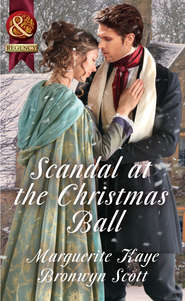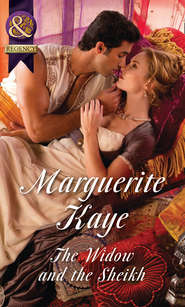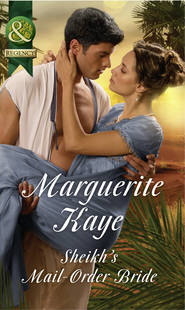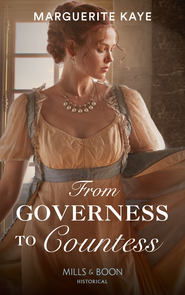По всем вопросам обращайтесь на: info@litportal.ru
(©) 2003-2025.
✖
Hot Arabian Nights
Автор
Год написания книги
2018
Настройки чтения
Размер шрифта
Высота строк
Поля
‘Do you still have room in your heart for love?’
‘If by that, do you mean will I ever marry again, the answer is an unequivocal no. My freedom is not quite so hard-earned as yours, but it is every bit as precious,’ Julia said. ‘But we are not here to talk about me. Tell me more of the Council meetings that take place here.’
‘Under my father they convened three times a week, though Kamal has reduced it to once. Membership is hereditary, representing the oldest families in the kingdom, although the King also has the authority to invest a man with specialist knowledge or skills. The Chief Overseer in charge of the diamond mines, for example.’
‘So the Council which meets now is the one your father selected?’
‘Kamal has nominated a number of younger men. A number of my father’s associates have stepped down.’
Azhar was pinching the bridge of his nose. It was a habit he had when he was unhappy about something, Julia had noticed. ‘That may be a good thing. Younger men often have a more progressive outlook,’ she suggested.
‘Or they may be more easily swayed. Although the King of Qaryma wields absolute power, it is easier to rule with the Council on your side. My brother has always been overly fond of getting his own way. He does not take well to having his will thwarted, but nor is he particularly strong-willed.’ Azhar grimaced. ‘A compliant Council is an ideal solution.’
An ideal solution for a weak ruler. Julia braced herself, for she understood now how very much he did not want to hear her question. ‘Are you quite certain that you wish to hand over your kingdom to such a man? Can you trust Kamal?’
‘Have you seen enough?’ Azhar walked away, holding open double doors at the other end of the Divan. ‘These will take us out to the Third Court. I am not ignoring your question, Julia,’ he said, as she passed him. ‘I am considering how best to answer it.’
The Third Court was about half the size of the Second, and a very different space. Two large pavilions sat adjacent to each other. There was a fountain in each corner, a low, precisely trimmed maze, and more mosaic paths. ‘This court is reserved for the royal family,’ Azhar said. ‘Those gates in the wall lead to what was once the old-style harem complete with concubines and eunuchs. My mother had it opened up, and turned into what is simply the women’s quarters. Some of her former maidservants still reside there along with Kamal’s wife.’
‘I’m surprised that someone as obviously greedy as your brother has only one.’
‘He may have his faults but he is still my brother. I would appreciate it if you kept such thoughts to yourself. Apart from anything else if overheard they might be considered treasonous.’
‘My apologies, it was a poor attempt at humour,’ Julia said contritely. ‘Where are we now?’
‘This building is the library,’ Azhar said, opening the door of the largest pavilion which on closer inspection was cruciform in shape. ‘We will be comfortable in there.’
The door to the library was panelled in bronze. Glass-fronted bookcases lined the walls of each of the arms of the cruciform, while light poured in through the windows set into the domed roof at the centre, where a huge round couch was placed. Azhar sat down here, indicating that Julia should join him.
He stretched his long legs out in front of him and folded his arms. ‘You asked if Kamal and I were close. You would imagine that we would be so, with only two years between us, no mother, no other siblings, but we were not. I was a typical boy in many ways. I liked to ride—horses and camels—I liked to fight with my sword and my fists, I liked to swim and to run. Kamal—well, Kamal has always been indolent. Unfortunately, our father was a man who valued what he called masculine prowess. In my father’s eyes, Kamal was less of a boy because he did not shine as I did at such things. I never—how do you say it—rubbed his face in it?’
‘Nose.’
‘Nose. Well, I never did that, but it didn’t matter. Kamal was jealous. I think there was a part of him that wished to emulate me. And he relied on me too, to play the big brother, even though he would rather he was the elder brother, you know? He was always outreaching himself, relying on me to bail him out when he came unstuck. Like the occasion when he took liberties with the sister of one of our friends, and her brothers set upon him.’
‘He must have resented you,’ Julia said.
‘That has not changed,’ Azhar said wearily.
‘It must have been difficult for him to stomach,’ she added, thinking that that had not changed either. ‘Taller, stronger, faster.’ Much more attractive.
‘And my worst crime of all. Older.’
‘The heir, by accident of birth. A heinous crime indeed,’ Julia agreed wryly.
‘I know, but I believe Kamal really does believe it is my fault.’
‘You don’t like him much, do you?’
Azhar winced. ‘I try not to let it show, but he is not stupid. Weak and petty and indolent, but far from stupid. I am not blinded by my determination to abdicate, Julia. All Kamal needs is the incentive to improve. Once he knows that Qaryma is his, that I truly am out of his life for ever, then he will prove himself.’
But she was beginning to suspect that Azhar was blinded. Like her, he craved his freedom, but there the similarities ended. Daniel was dead. Azhar’s love of his kingdom had merely been buried. He was an honourable man with a strong sense of duty. This notion he had, that he could set Qaryma to rights and Kamal too, it was a most laudable intention, but it was impossible.
Julia’s toes curled inside her slippers, but honesty was what Azhar had requested of her, and true to herself was what she had resolved to be. ‘You have set yourself a herculean task if you plan to remedy things in just three short weeks, and—and I think you should ask yourself why,’ she said carefully. ‘No matter how much you deny it, you care for your kingdom, and you know in your heart that your brother is not fit to rule—will never be half the man that you are. You may quell your conscience by shoring things up, by remedying whatever problems you uncover. That may permit you to enjoy your freedom for a few more years, but it will be what it has always been—a mirage. You will be obliged to come back eventually. I am so sorry, Azhar, but whether you like it or not, the one thing you cannot abdicate from is your conscience.’
Azhar got to his feet. He was angry, she could see the pulse beating in his throat, but he was making a huge effort not to show it. ‘I will not permit you to condemn me to a lifetime of captivity until you understand what that would entail. And the price I have to pay. Come with me.’
‘Where are we going?’
He strode out of the library, across the Third Court to yet another set of iron gates, which he opened with a huge key, ushering her through a passageway to a door, which he then heaved open. ‘The Fourth Court,’ Azhar declared.
* * *
It was a square formed by three high walls and one low parapet. In the centre was a kiosk, but it was the gardens which drew Julia’s attention, for they were laid out not at all in the formal style of the Third Court, but in a riot of colour, more in the style of an English cottage garden than the garden of an Arabian king.
The space was surprisingly intimate. Aromatic herbs planted at the edges of the winding mosaic paths scented the air as her tunic brushed against them. The parapet looked out over Al-Qaryma to the oasis and the desert beyond, the same view as the large garden, but from a higher viewpoint. That wall there must form the boundary between the two. Rushing from one path to the next, she found a tantalising mixture of flowers and shrubs, some exotic, some quintessentially English, all jostling for space, and living happily together in a way she would not have given any credence to had she not seen it for herself.
‘It is as if someone has commanded the East to merge with the West,’ Julia exclaimed. ‘A secret garden, whose is it?’
‘The Fourth Court is exclusively for the use of the King of Qaryma.’
Julia’s eyes widened. ‘Your father’s private quarters?’ While she had been running from path to path, Azhar had remained quite still at the door of the Court. This was no magical garden for him. It was his father’s inner sanctum. ‘I’m sorry,’ she said. ‘I should not have allowed myself to get so carried away.’
Azhar shrugged. ‘I had forgotten,’ he said. ‘I don’t remember it being so—’ He broke off making a vague gesture. ‘Seeing it through your eyes, I can see it is—I can understand your surprise.’
‘Who tends to it?’
Another shrug. ‘The palace has an army of gardeners. There is an entrance door in the connecting wall to the main garden where you have been working.’
Julia hadn’t noticed a door, and she had spent hours and hours in the other garden, but now was hardly the time to ask if it was possible to...
‘I’ll have someone give you the key,’ Azhar said, as if he had read her mind. ‘If you really want to paint this, that is. I doubt there are any new species for you to catalogue.’
‘It is the unexpectedness of it that appeals to me. I had not thought—that is, I thought your father—all this, it does not really equate with the man I imagined.’
‘No?’
Azhar’s expression was unreadable, but there were tiny lines of tension around his eyes, and the pulse still throbbed at his throat, a sure sign that he was discomfited. She touched his arm lightly but he turned away towards the building which stood in the centre of the Court. ‘This is the Royal Kiosk,’ he said.
The kiosk had two storeys, the broad roof overhanging to form an arcade which surrounded the building. A huge gilded dome emerged from the centre of the roof, with a small minaret sitting incongruously beside it. The marbled exterior was, like the kiosk in the main garden, alabaster white, throwing the brilliant colours of the tall stained-glass windows, six on each storey on the façade alone, into stark relief.
Azhar opened the double door with another key and stepped aside for Julia to enter. The room was breathtaking in its beauty and of staggering size, for it was double height, taking up the entire length of the kiosk, the ceiling arching up into the gilded dome at the centre of the roof giving it a cathedral-like ambiance. Light streamed in, vivid rays of emerald, red and blue, dancing over the intricate mosaic floor. The walls were tiled to the first-floor level, in rich glazed colours that gleamed, as if they had been polished. From the dome hung the biggest chandelier Julia had ever seen, on a very long chain, set over the marble table chased with gold which stood in the very centre of the room. At the furthest end, set into a window embrasure, was an enormous divan. There was no other furniture in the huge space.
‘Another throne room,’ Julia said, her voice hushed.
‘This is where my father conducted his private audiences. He signed his official papers and royal decrees at that table. This is the room from which he ruled and wielded power.’
Julia turned in circle, her head back, gazing up at the dome. ‘When you said this was your father’s private quarters, I imagined something more intimate.’











